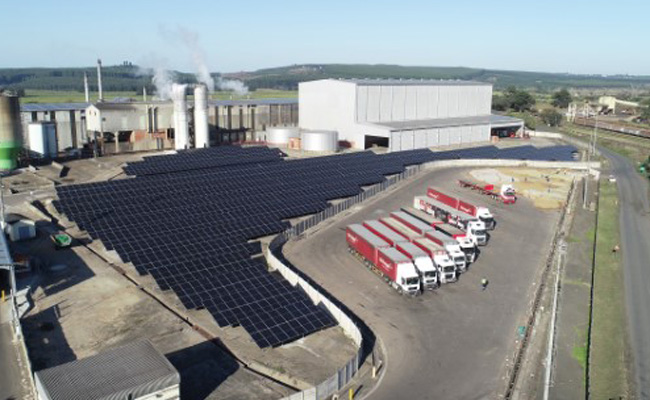From goings-on in politics to info drops in the economic world, we’ve got you covered on what to expect this week.
Politics
G20 summit
This week will be defined by the build-up to the G20 Leaders’ Summit, which will take place on November 22-23 in Joburg. Five world leaders – US President Donald Trump, Argentina’s Javier Milei, Mexico’s Claudia Sheinbaum, China’s Xi Jinping and Russia’s Vladimir Putin – will not be attending though for differing reasons.
Trump has ordered a complete US boycott due to his continued belief in the misinformation that white South African Afrikaners are facing continued persecution. Unlike the US, Argentina, Mexico and China will be sending delegations. Putin will not be attending the summit due to the outstanding International Criminal Court arrest warrant he faces.
Many delegations attending the summit at the weekend expect it to be more of an opportunity for bilateral talks than the usual multilateralism. There are expectations that some delegations could still downscale due to the US’s boycott of the event. The US absence will also make any decisions taken at the summit very difficult to implement. The US is scheduled to take over the G20 presidency for the next year.
President Cyril Ramaphosa said this week that South Africa will “symbolically hand over” the G20 presidency to an “empty chair”. He stressed that he would still seek dialogue with Trump afterwards, emphasising that preserving economic ties with the US remains a priority. He warned against disengaging, arguing that one must sometimes “talk to people who may not be very friendly” to protect national interests.
National women’s shutdown
A nationwide protest dubbed the “G20 Women’s Shutdown” is scheduled for Friday, as Women for Change leads a co-ordinated nationwide shutdown calling for the gender-based violence crisis to be declared a national disaster. The action urges women to refrain from all paid and unpaid labour, halt consumer spending for the day, and participate in a 15-minute silent standstill at noon.
Investigation into teenage pregnancy in the Northern Cape
The Commission for Gender Equality (CGE) will be holding a two-day hearing and investigation into teenage pregnancy in the Northern Cape. The South African Police Service, key provincial departments (health, education and social development) and civil society organisations will be engaged by the CGE to determine whether adequate measures are in place to prevent, manage and respond to the issue.
Committee week in parliament
It’s a busy week for portfolio committees in parliament, with no plenary sittings. The standing committee on public accounts continues its inquiry into the Road Accident Fund on Tuesday. The home affairs portfolio committee will receive a briefing on Tuesday from the Electoral Commission of South Africa on amendments to the Electoral Act ahead of next year’s local government election. Tuesday will also see the water and sanitation portfolio committee receive briefings from the National Treasury and office of the auditor-general on the financial position of the City of Joburg, with respect to Joburg Water and water security in the city.
On Wednesday, the higher education portfolio committee will receive a briefing from the higher education department on the appointment of Sector Education and Training Authority (Seta) accounting authorities, Seta CEOs and National Student Financial Aid Scheme governance matters.
Economics
October CPI
Wednesday’s October CPI data will headline the week’s economic developments. Inflation is set to rise from 3.4% in September to about 3.8%, driven mainly by a slower decline in fuel prices and still-elevated food costs. Brent crude eased slightly over the month, and the rand held steady, resulting in a smaller monthly fall in petrol prices (-0.5% compared to September’s -0.9%).
For the first time in a year, petrol is now expected to show a small year-on-year increase of roughly 2%. Food inflation remains sticky at about 4.5% year on year, with meat prices still influenced by ongoing disruptions in foot-and-mouth vaccinations, while most other categories show some moderation.
October is a light survey month, so volatility across non-food categories should be limited. Core inflation should remain contained, edging only slightly from 3.4% to about 3.5%. The print is likely to matter more for how markets judge alignment with the new 2%-4% inflation targeting band than for the monetary policy committee’s decision itself.
MPC meeting
The monetary policy committee (MPC) meets from Tuesday to Thursday under very different conditions from its July and September sessions. For the first time in more than two decades, the inflation-target range has been formally lowered: now 2%-4% with an explicit focus on anchoring outcomes near the 3% midpoint. The market remains split on whether the MPC will hold or cut; mild upward pressure in the next few months suggests caution, but underlying inflation looks to be fading
A 25 basis-point cut is seen as plausible given subdued core inflation, falling global food prices, weak oil markets and a stronger rand. Global inflation has also slightly softened, with US disinflation aided by tariffs, a subdued dollar and persistent Chinese overcapacity.
Even with a cut, the real policy rate would remain high, just under 3%, leaving the MPC room to back growth while still keeping its focus on inflation. The week ahead is set to clarify how the South African Reserve Bank plans to operate under the tighter target.

This article is published courtesy of The South Africa Brief, a political newsletter published on Substack which is a collaboration between Paul Berkowitz and Jonathan Moakes. It provides analysis and insight into the new, uncertain era of South African politics heralded by the 2024 general election. Including a specific focus on municipal politics, it will provide full analysis in the run-up to next year’s municipal polls.
Top image: Rawpixel/Currency collage.
Sign up to Currency’s weekly newsletters to receive your own bulletin of weekday news and weekend treats. Register here.











